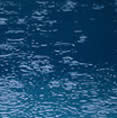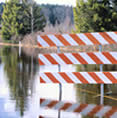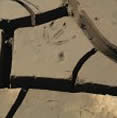Whether conditions in your area are hot and humid, cool and dry, or rainy with sudden
downpours, your weather directly affects pests and their activities. These conditions
prompt pests to invade your home to seek three very basic needs – food, water
and shelter. Find out how your local weather is affecting your pest forecast this
summer, then use our tips to help maintain a pest-free home!
Rainy, Wet Weather
Pest Forecast: More pests may invade your home.

You can expect an increase in the number of pests you see this summer, plus more
invasions, as these larger populations seek food. Specific pests you should watch
for include: ants,
outdoor cockroaches, spiders,
crickets, ladybugs,
yellow jackets,
hornets, mice and rats. Here’s
why:
- More moisture promotes pest reproduction and growth, so you have more insects! Ants,
especially, reproduce in greater numbers in wet, warm climates.
- Additional pests
mean a greater need for more food sources. Insects will continue to search beyond
their normal habitats to find food.
- Invasions may occur as pests relocate to
drier ground.
Excessive Rainfall and Flooding
Pest Forecast: Ants and others retreat from flooded soil.

Excessive rainfall over a short period of time will flood the soil and cause insects,
especially ants, to seek dry ground. Some pests
retreating from the unfavorable weather conditions will find shelter in the nearest
location, which is often your home. Other facts to note:
- Ants can easily move an entire colony on short notice.
- Common areas that
may become new homes overnight for ants are wall voids and under foundations.
-
Excessive rain creates an abundance of ants, which increases the need for pest control
services.
Dry Conditions
Pest Forecast: Pests most likely will seek water in and around your home.

Rain will create additional pest growth, while lack of rain promotes pest invasions.
If you enjoyed a dry, cool spring, chances are pests may be fewer, but they will
be relentless in their pursuit of moisture for survival. Dry conditions affect pests
in the following ways:
- Lack of moisture outside drives pests inside homes to find water.
- During
dry weather, ants,
earwigs, millipedes,
pillbugs and sowbugs, crickets
and spiders are the most common pests to seek
water indoors.
- Millipedes have been known to leave leaf litter, mulch or a lawn
and move in migrations of thousands when their harborages dry out – inevitably
invading homes that stand in their way.
Extreme Drought
Pest Forecast: Fewer pests but more frequent visits.

Fewer pests are one benefit of a dry spring and summer. Extended periods of dry
weather or droughts will affect the food supply also eliminating some insects. Here's
what you can expect:
- With a reduced food supply, scorpions
and certain spiders must venture beyond their
normal habitats in search of a food source.
- Pests may establish breeding sites
and harborages in and around your home – in debris, bricks, rocks, firewood,
etc.
Cool Weather
Pest Forecast: Warmth indoors attracts pests into your living spaces.

With cooler temperatures outside, pests seek the warmth and shelter of your home.
Some pests you are likely to find invading your home to escape the cooler temperatures
are box elder bugs,
cluster flies,
ladybugs and silverfish.
Here’s more about these pests:
- Occasional invaders, like overwintering pests, start moving indoors during late
summer and early fall as the temperature drops.
- These pests like to use walls,
voids and attics as their winter retreats.
- There isn’t any way to totally
pest-proof your home, but you can seal as many cracks and holes on the outside of
your home as possible, especially on the south and west walls where the sun heats
the home during the late summer and fall. Also, you should install tight-fitting
screens on all foundation and attic vents.
Any short period of drought, extended rainfall or excessive heat or cold can force
insects and other pests to invade homes seeking relief from unfavorable weather
conditions. Like people, pests are affected by extreme heat or lack of rain and
will do what is necessary to survive. Understanding the cause-and-effect relationship
of weather and pests will help keep insects out of your home. For more information
about pest control, click here. Schedule a Free Pest Evaluation online today and
a Terminix representative will perform a complete analysis of your home.